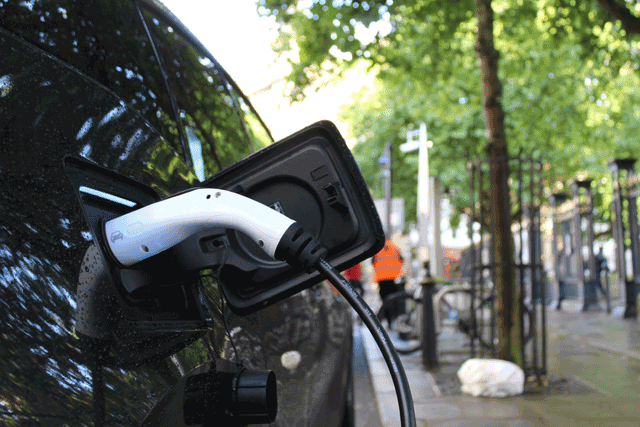By Mays Ibrahim Mustafa – Dec 31,2022

Representative image (Photo courtesy of unsplash/Andrew Roberts)
AMMAN — The year 2022 marked the clearance of roughly 56,000 vehicles, with a roughly 180 per cent increase in the clearance of electric cars, according to the Jordan Free Zone Investor Commission (JFZIC).
Diesel vehicles’ clearance decreased by around 10 per cent, while that of gasoline cars witnessed a roughly 20 per cent decrease and hybrids’ clearance numbers dropped by roughly 40 per cent, Jihad Abu Nasser, representative of the automobile sector at the JFZIC, told The Jordan Times.
He noted that due to the high prices of fuel, electric cars can reduce users operational expenses by 80 per cent compared with gasoline cars and by 50 per cent compared with hybrid cars.
During the first 11 months of 2022, 14,733 gasoline vehicles, 8,879 diesel vehicles, 12,405 hybrid vehicles and 14,377 electric vehicles were cleared, according to a report by the JFZIC, made available to The Jordan Times.
The first 11 months of 2021 marked the clearance of 18,641 gasoline vehicles, 10,055 diesel vehicles, 18,039 hybrid vehicles and 5,083 electric vehicles, the report showed.
Moreover, Abu Nasser noted that the end of the year was marked by a notable increase in the number of cleared cars, especially the ones manufactured in 2017.
As per the law, auto dealers had to clear or re-export vehicles that are older than five years by December 31, he said.
Clearance rates tripled during the last week of December, according to Abu Nasser.
Usually, the average clearance rate of cars is 250 per day, but December 28 marked the clearance of roughly 500 cars and around700 cars were cleared on the last day of 2022, he said.
Abu Nasser also pointed out that although the automobile industry faced a set back after the outbreak of the COVID-19 pandemic due to global disruption in supply chain, a set of fiscal stimulus measures alleviated the impact of this issue at a local level and even allowed the sector to grow.
These include the economic stimulus package approved by the Cabinet at the end of 2019.
“It reduced the tax on electric cars from 25 to 10 per cent, abolished the weight tax on cars and reduced consumption rates, which lead a JD2,000 in cars’ prices in 2020, leading to a 30 per cent growth in clearance rates compared with the year 2019,” he said.
The measures taken by the Central Bank of Jordan in 2020 to alleviate the repercussions of pandemic on all economic sector, including reducing interest rates, also helped protect the sector from global disruptions, he added.
However, Abu Nasser said that export figures began to decrease in 2021 due to imposing the income tax on institutions registered in free zones in 2018.
“This drove investors to other countries. Nowadays, they immediately export the imported vehicles from the Aqaba port to Iraq, Lebanon or the West Bank to avoid the tax,” he added.
In 2019, 67,282 cars were exported compared with 46,198 cars in 2021, he continued, estimating that the size of car exports in 2022 stands at roughly 44,000.
The Cabinet recently approved the new investment law, which will relieve institutions in free zone from the income tax as of 2023, according to Abu Nasser.
“It will take two to three years for the law’s impact on the size of exports to become apparent,” he said, noting the importance of stable legislations to attract and retain investors.
He added that car prices are expected to remain somewhat stable in 2023.
“It’s going to take some time for prices to return to pre-pandemic normalcy,” he continued, noting that there was a notable increase in the prices of all cars during September 2022 due to the “dramatic rise in freight rates”.
Moreover, after the outbreak of the COVID-19 pandemic, used cars’ prices increased by 50 per cent in their origin countries then decreased by 10 per cent in the post-pandemic period during the year 2022, according to Abu Nasser.
He also said that there are signs of recovery in auto supply chains, but true relief, which might reflect on the prices of used cars, is going to take time.
Increases in the costs of energy, raw material and transport will still have a significant impact on the manufacturing costs and therefore prices of cars, he added.
https://www.jordantimes.com/news/local/2022-proved-good-start-electric-cars-jordan-data-show
